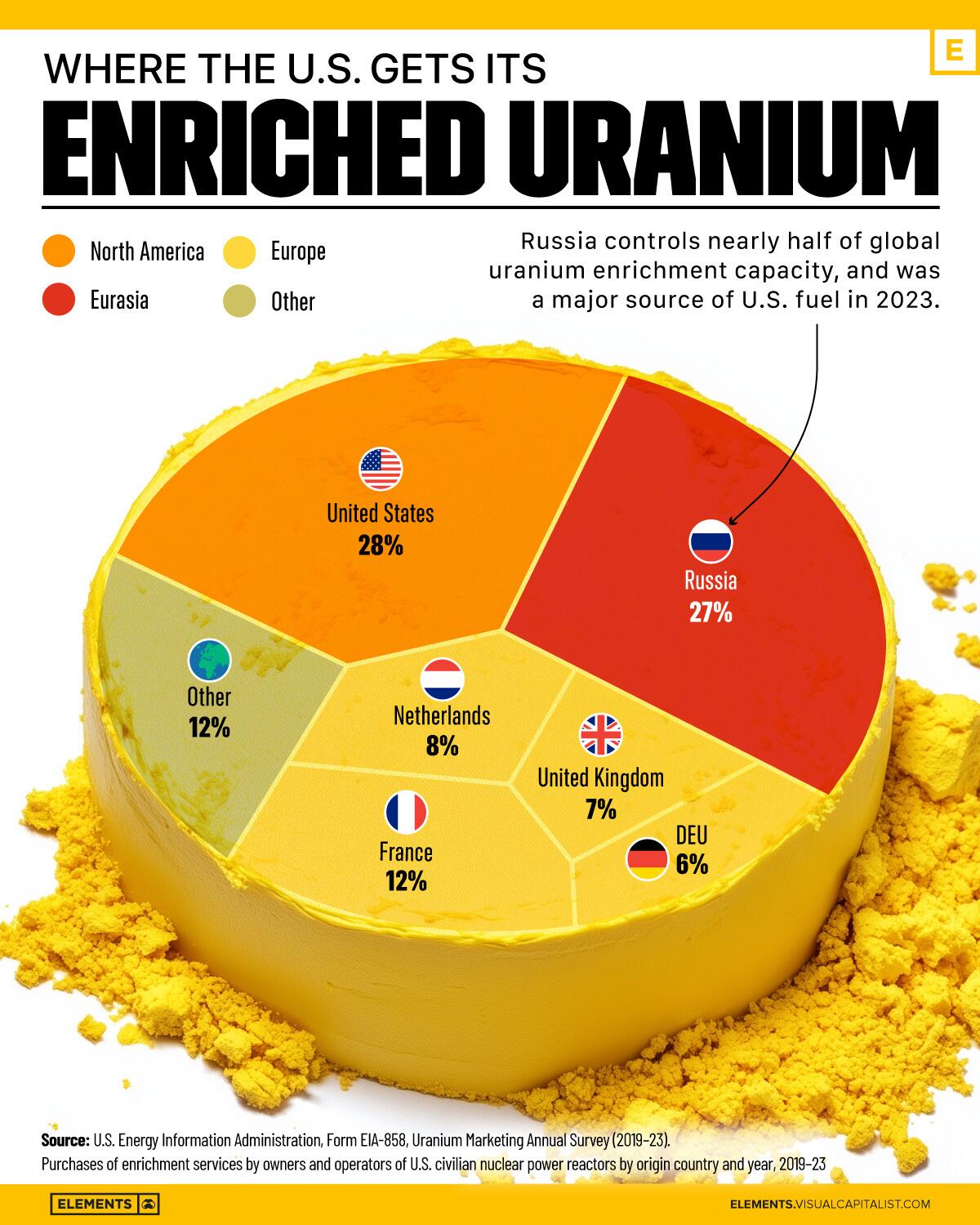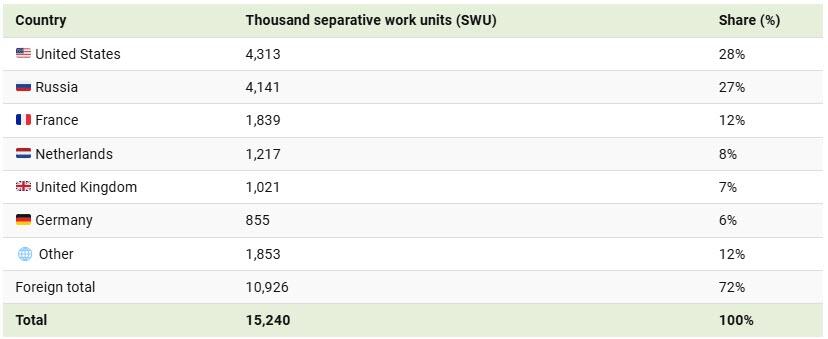Is U.S. Nuclear Power at Risk? Russia's Uranium Restrictions Explained
Tyler Durden
 Nuclear power accounts for 19% of electricity generation in the U.S. Nuclear power accounts for 19% of electricity generation in the U.S.
This graphic, via Visual Capitalist's Bruno Venditti, illustrates the top sources of enriched uranium for U.S. civilian nuclear power reactors in 2023, based on data from the U.S. Energy Information Administration.
The calculation is based in Separative Work Unit (SWU), a unit that defines the effort required in the uranium enrichment process.
U.S. Suppliers of Enriched Uranium
Uranium production in the United States peaked in 1980, while purchases of uranium by U.S. nuclear power plant operators from domestic suppliers peaked in 1981. Since 1992, the majority of uranium purchased by U.S. nuclear power plant operators has been imported.
Currently, the U.S. relies on foreign sources for 71.7% of its enriched uranium, despite possessing domestic resources.
Russia supplies 27.2% of enrichment services, making it the largest single foreign provider for U.S. civilian nuclear power reactors. After Russia, 12% of enriched uranium comes from France, 8% from the Netherlands, and 7% from the United Kingdom.


Russia Temporarily Limits Exports
In November 2024, Russia temporarily restricted enriched uranium exports to the U.S., raising concerns about potential supply risks for utilities operating American reactors. These restrictions were in response to Washington’s recent ban on imports of Russian uranium, which was signed into law earlier this year.
In addition to the U.S., Russia is a major exporter of enriched uranium to countries including China, South Korea, and France.
By Zerohedge.com
 our mission: our mission:
to widen the scope of financial, economic and political information available to the professional investing public.
to skeptically examine and, where necessary, attack the flaccid institution that financial journalism has become.
to liberate oppressed knowledge.
to provide analysis uninhibited by political constraint.
to facilitate information's unending quest for freedom.
our method: pseudonymous speech...
Anonymity is a shield from the tyranny of the majority. it thus exemplifies the purpose behind the bill of rights, and of the first amendment in particular: to protect unpopular individuals from retaliation-- and their ideas from suppression-- at the hand of an intolerant society.
...responsibly used.
The right to remain anonymous may be abused when it shields fraudulent conduct. but political speech by its nature will sometimes have unpalatable consequences, and, in general, our society accords greater weight to the value of free speech than to the dangers of its misuse.
Though often maligned (typically by those frustrated by an inability to engage in ad hominem attacks) anonymous speech has a long and storied history in the united states. used by the likes of mark twain (aka samuel langhorne clemens) to criticize common ignorance, and perhaps most famously by alexander hamilton, james madison and john jay (aka publius) to write the federalist papers, we think ourselves in good company in using one or another nom de plume. particularly in light of an emerging trend against vocalizing public dissent in the united states, we believe in the critical importance of anonymity and its role in dissident speech. like the economist magazine, we also believe that keeping authorship anonymous moves the focus of discussion to the content of speech and away from the speaker- as it should be. we believe not only that you should be comfortable with anonymous speech in such an environment, but that you should be suspicious of any speech that isn't.
www.zerohedge.com
| 

